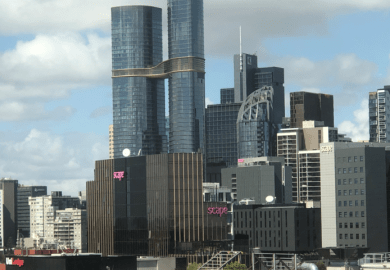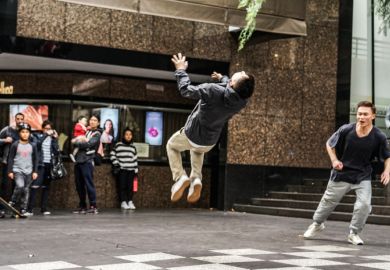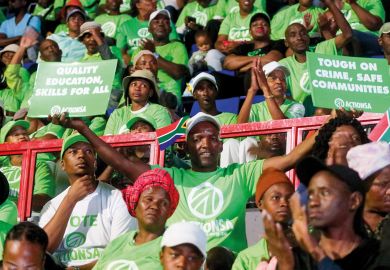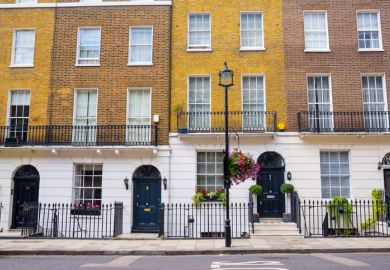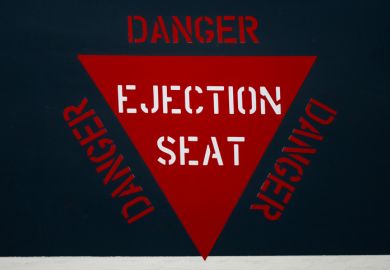Domestic students appear set to be the winners and overseas students the losers in Australia’s 14 May budget, as the government eases cost-of-living pressures for locals while intensifying the financial hurdles for foreigners.
Canberra has confirmed that payments for students on practical placements will be included in the budget. The move, foreshadowed on 6 May, follows news that changes to student loan indexation will wipe about A$1,200 (£633) from the average graduate’s debt.
Meanwhile, the government is expected to increase the student visa application fee from the current A$710 – already among the highest in the world. Education agents have also reported that the “financial capacity” requirement imposed on many overseas students has been increased by more than 20 per cent, from A$24,505 to A$29,710.
The financial capacity requirement is intended to ensure that students have enough money to cover their tuition fees, travel costs and initial year’s living expenses. Students must meet it if they come from countries or are enrolled with institutions deemed to be immigration risks.
The Education Department revealed the higher figure on a website on 2 May before retracting it a day later, saying the “error” had been corrected to reflect prevailing information. Times Higher Education has asked the Department of Home Affairs whether there are any impending changes to the financial capacity benchmark, which was increased by more than A$3,000 just last October.
Former immigration bureaucrat Abul Rizvi tweeted that officials may be awaiting “formal announcement” of a change designed to prevent a repeat of the “huge” influx of student visa applications between July and September last year.
Dr Rizvi also expected the government to increase visa application fees, in a triumph of politics over policy. The Grattan Institute thinktank has recommended an increase to A$2,500 to dampen international appetite for Australian education, with the proceeds used to subsidise rent assistance for disadvantaged locals, although many observers think an increase of that magnitude is unlikely.
“I think the likelihood of a fee increase is strong but would be poor long-term policy,” Dr Rizvi told THE. “Being competitive for the best students should be the priority.”
Phil Honeywood, chief executive of the Australian International Education Association, said an increase to the non-refundable visa application fee would be a “massive” disincentive. “If you’re going to substantially increase student visa fees, then on equity grounds you need to make them refundable for students who miss out,” he said.
“We’ll become the highest fee-charging study destination in the world. It really does make it incumbent upon us to do better at both transparency and processing but also professionalism, in particular when it comes to providing reasons for rejections.”
Commentators have applauded the government’s proposal to ease placement poverty among domestic students. The “commonwealth prac payment” would see an estimated 68,000 higher education students receiving A$319.50 a week during mandatory clinical and professional placements for teaching, nursing, midwifery and social work degrees.
The government intends to introduce the means-tested payment, which is equivalent to the current Austudy living allowance for single students aged over 24, from mid-2025.
The payment, like the changes to student debt indexation, will require parliamentary approval. The education minister, Jason Clare, said the proposed allowance would help to alleviate the cost pressures fuelling shortages of teachers and health professionals.
“A lot of people tell me that…struggling to pay the bills while they’re doing their prac means that they either delay their degree or they don’t finish it at all,” he told the ABC.
He said the government would consider whether to extend the payment to students in other fields such as physiotherapy or radiography, and would work with unions and universities to “sharpen and define” means-testing of the allowance “to make sure that we’re giving this to the people who need it the most”.
Unions New South Wales secretary Mark Morey said students should get a minimum wage instead of a means-tested payment. “There’s a real need for governments of all persuasions to be thinking long term,” he told the ABC. “If we want a highly skilled country, we need to put the money in early to support them so they’re there in the long term.”
Mr Clare said the budget would include the “first full stage” of the government’s response to the Universities Accord, and the government would not rule out any accord proposals. “Implementing all of those recommendations can’t be done in one budget; it’s going to take a decade or more,” he said. “What you’ll see on budget night are the things that we need to do first.”
Register to continue
Why register?
- Registration is free and only takes a moment
- Once registered, you can read 3 articles a month
- Sign up for our newsletter
Subscribe
Or subscribe for unlimited access to:
- Unlimited access to news, views, insights & reviews
- Digital editions
- Digital access to THE’s university and college rankings analysis
Already registered or a current subscriber? Login


